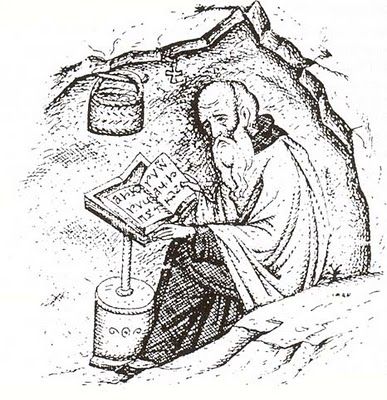Saint Dorotheus of Gaza
Who can say what is good or bad?

There’s a very old Taoist story of a farmer you might have heard. Things happen, and to each the farmer remarks, “Who can say what is good or bad?” For example, his son breaks his leg — bad — but the next day the army says he doesn’t have to go off to war because he’s injured. Sometimes it’s the opposite, and what seems good becomes bad.
There’s a mathematical version, too. Braess’s paradox, from the 1960s, describes how, sometimes, closing a highway and forcing cars onto many smaller, less-direct roads can actually save travelers time. Just as well, adding a seemingly more direct route may slow everyone down. Networks in general, and here I think life itself is one, are so complex that a local solution often introduces a new problem very far away.
Dorotheus of Gaza, the genial desert saint of the 6th century, also told this story. Perhaps it is actually the most true version. Dorotheus said: “When Abba Agathon was nearing death, the brethren asked him, ‘Are you not afraid, father?’ He answered, ‘As far as I could, I have made myself keep the commandments, but I am a man, and how can I know whether what I have done is pleasing to God. For God’s judgment is one thing and man’s another.’”